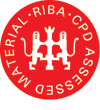The European Urban Wastewater Treatment directive and other such pieces of legislation have steadily increased the required quality of wastewater discharges.
As a result, there has also been an associated increase in the energy consumption and CO² emissions in the processes used to treat wastewater to these enhanced standards.
Now however, the industry is looking at alternatives that reduce energy consumption by using treatment technologies that mimic natural systems. This programme takes a look at two of the principal types of natural wastewater treatment systems.
About the contributors
Michael Norton MBE is a civil engineer with 35 years of professional experience in the fields of urban water, water resources and the environment. His current focus is on providing thought leadership in the fields of water scarcity and water security. He has led major projects in Europe, Latin America, the Middle East and Asia, and is a specialist in the design of wastewater treatment plants in cool and tropical climates, including natural treatment processes. He was awarded the MBE in 2009 in recognition of his services to water and to international trade.
Colin Gittings is a Process Engineer based in Crawley, UK who joined Halcrow in 2005 from Sutton and East Surrey Water plc. In addition to process engineering, his experience includes on-site specialist investigation, regulatory audit work (including business and management process investigation) and project management. Colin has co-managed and participated heavily in Halcrow's natural wastewater treatment research and development project since 2008. Colin currently sits as an elected committee member of the Constructed Wetlands Association.


